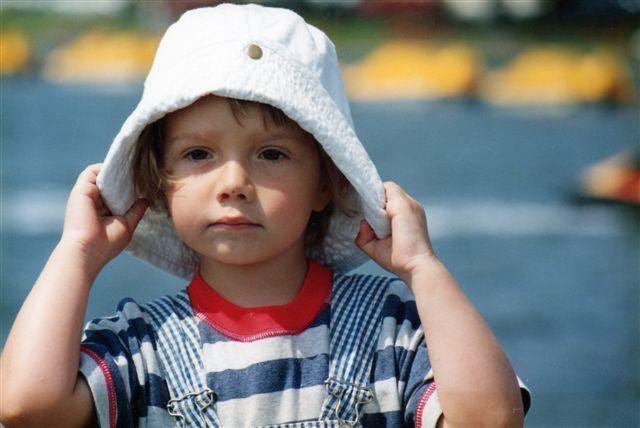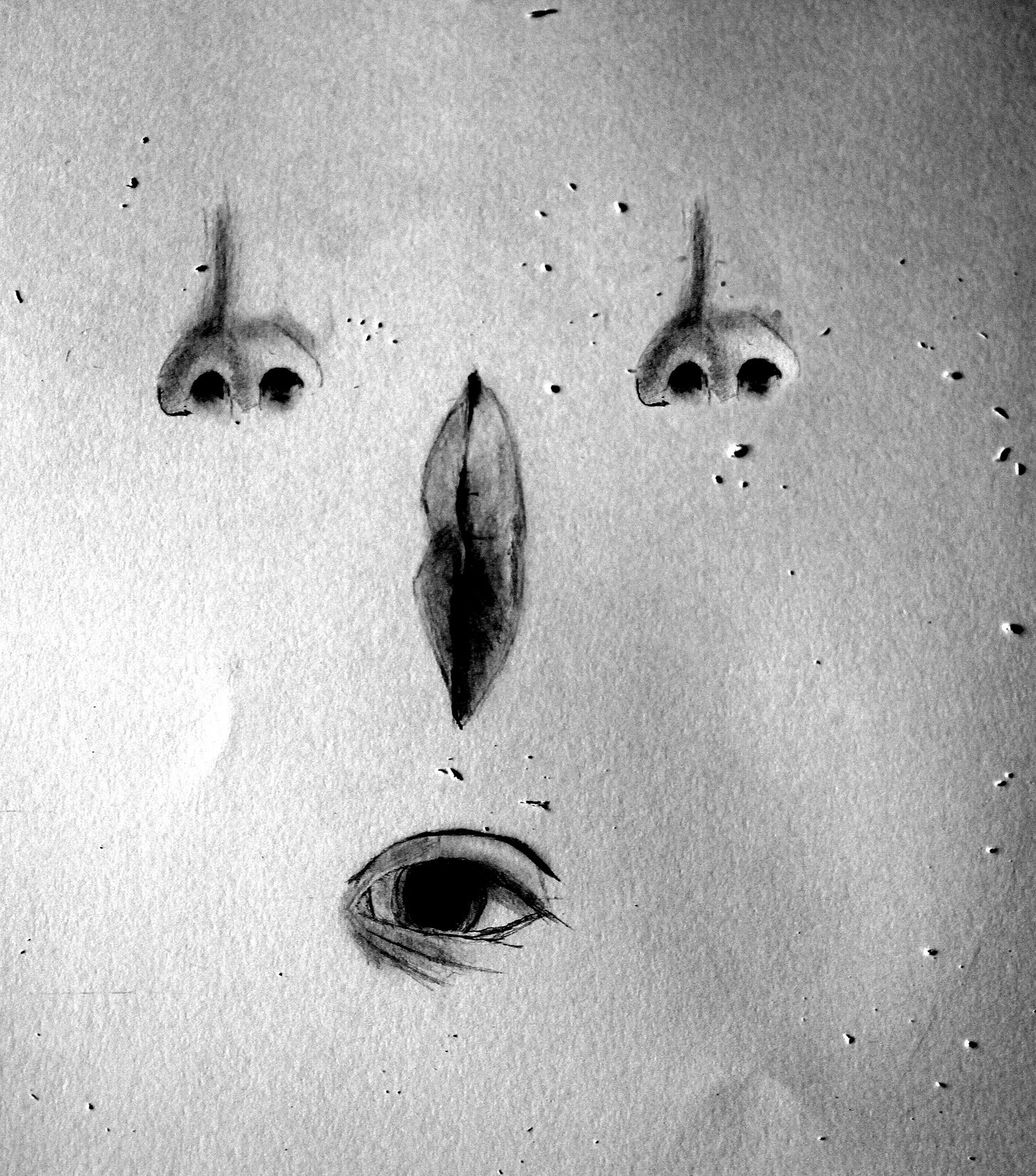The Weird Creature You Are Reading
Might delete later
I'm thinking about writing some brief articles on more mundane aspects of my life — things like how I dealt with depression, my strange thoughts on career prospects, my moral development, my experiences with romantic relationships, and so on.
Most of the time, I end up wanting to bring up parts of my background, because my life has been pretty weird and certain things seem like they'd need some explaining.
I've settled on giving a brief overview of some of the most important bits here, so that I can just refer back to this article whenever I need to.
1. My Pre-Teens
I was born in the 90s and spent most of my early life happily in a lovely European city of over 100,000 people.
Unfortunately, my dad died of a heart attack when I was nine, and my mom was diagnosed with cancer soon after. She passed away when I was twelve.
I found this gesture on their part to be quite inconsiderate in my regards and I didn’t appreciate it much.
My dad was big and tall, a veterinarian, and (from what I can remember) a center-left moderate. He was also a heavy smoker who loved reading and programming.
I felt very loved by him and loved him very much.
My mom had a slightly more complicated résumé: she had been a hippie and was a very progressive feminist. She was also an evangelical Christian, a New Testament type who liked giving money to people and talking about compassion and Jesus (we had immigrants ringing our doorbell every other week).
I felt very loved by her and loved her very much.
When you lose your parents young the state assigns you a legal guardian. In my case, it was my aunt (my father’s sister) someone I had only met a handful of times before.
Later I discovered there had been big arguments about it. My mother had left a written note expressing her wish that I be raised by some distant cousins I knew a bit better. But the note had no legal weight.
2. My Teens
My new home was in a small town of less than 6000 souls.
My aunt had "broken up" with her husband, though they were still living together and still technically married. They had two sons, both quite a bit older than me.
In my new family nobody believed in God (my naive habit of praying before meals was met with mockery), and dinner table conversation didn’t focus on sharing how our days went, let alone discussions around the systemic alienation of late-capitalist hegemony as refracted through the rhizomic intersectionality of marginalized identities. You mostly ate a big plate of shut-the-fuck-up and watched the news.
You were allowed to talk about the family business, though. Of which my uncle, the (self declared) head of the household, was the owner. To be fair, everything did seem to gravitate around him, since the other three members of my new family all worked for him. Politically, he was very much on the right, but he also had a generalized distrust of politicians, bordering at times on outright hatred.
On a practical level this different family culture meant that many of what were previously virtues had now become vices, and many of my vices had become virtues.
In my first home, I had been encouraged not to care about how I dressed, to spend long hours with books, to avoid saying no, and to be kind and empathetic to everyone.
Now, I was told to preoccupy myself greatly with appearances and presentation, to always stay in order, and to be strong, even forceful, when I wanted something in life.
It took me a while to understand this, and longer still for my brain to learn how to cope with it. Though, to be honest, I’m not sure it ever did.
I didn’t like my new existence much. At first, I tried to escape into books when I could — one of my oldest habits — but eventually I discovered the world offered stronger coping mechanisms. In my early twenties, I found a powerful one: mathematics.
But that’s a story for another time.
3. Dysthymia
When I was around 22 or 23, I started to suspect there might be something wrong with me. Outside the house, I enjoyed decent success with the opposite sex and had plenty of friends. One might, in a moment of entomological poetic license, have described me as a resplendent social butterfly. And yet, I had a hard time wanting to get out of bed in the morning.
For a long time, I assumed this was normal. After all, the great philosopher Schopenhauer had declared that life was a pendulum swinging between boredom and suffering. But, at a certain point, I began to suspect that this 'insight' into the human condition might not have been telling the whole story
So I went to see a psychologist, in the hope that a trained professional might give me some additional information regarding the nature of my predicament.
I wasn’t happy about doing this, there was still some social stigma around these things at the time, and It felt like admitting I was some kind of loon. The psychologist asked me a series of kind questions, I cried a little, and at the end of the session I asked if everything was okay. He said probably not.
I pressed him for a diagnosis, and he told me it was too early to say — but if he had to guess, I might be cyclothymic (the little brother of bipolar disorder).
I never went back to him and didn’t tell anyone about it.
About six months later, I repeated the procedure with a different psychologist. She refused to offer a diagnosis but encouraged me to keep seeing her. I didn’t go back to her either.
I wasn’t entirely sold on this sort of thing becoming a hobby of mine, so there was no third attempt — at least not for a long time. I remember wondering if I might have some kind of split personality disorder. A small part of me thought that was actually kind of cool; I was like Two-Face from Batman! Looking back, I think I’d taught myself to laugh in the face of suffering as a kind of survival tactic, and somewhere along the way, I’d started romanticizing my condition.
Finally, at 27-28, during my PhD, I started seeing a psychiatrist on a regular basis for about six months. Very expensive. After a while, he told me he thought I had dysthymia.
He prescribed me some Xanax to take as needed, and an SSRI whose name I can’t recall but, to be honest, I was too anxious to take them properly. I’d read one too many stories about side effects on the internet. So I took the SSRI every other day for about a month, then quit entirely because I was too scared to keep going. Sorry doc.
4. Dysthymia Free
Now I’m in my mid-thirties, and I’ve been free of dysthymia — or whatever the hell it was — for three and a half years! Life feels completely different from anything I’d ever known. I never, ever imagined it could feel this serene, this pleasant. Hurrah!
In my attempts to get better, I tried a lot of things. I changed my diet, fixed my sleep patterns, got more natural light, and made major adjustments to both my social and professional life. I even reevaluated my moral perspective on the world.
I often wonder which of these changes—if any—actually made the difference. I have my suspicions. But I can’t know, given the causal ambiguity introduced by confounding variables and the lack of experimental control.
I sure hope everything keeps going well though! (Please, dear God)
And that’s it for now, I guess. I think there may be some insights lurking in how different parts of my life unfolded, so I might talk about them in more detail in the future.




I was diagnosed with depression and generalized anxiety 16 years ago and only started therapy about 2 years ago, still thinking about maybe taking meds but currently I'm feeling better.
I've also made many changes, some of them are definitely good, like diet and sleep but I wonder if the changes I made to my career and my philosophical views were good in every way.
I sometimes think that at least some of my current views are "copes" and I wonder if I would actually see the world more clearly if I had just started taking SSRIs 16 years ago. I think I sometimes avoided unpleasant conclusions, because I was just too sensitive due to my poor mental health, at other times I was unnecessarily edgy. Even though my mental health has been better for a while now, many of those beliefs that I formed over the past 16 years might stay with me forever.
Thank you for sharing. As an aside, I think the self portrait is very well done. Is it mixed media? The noses seem almost identical. Maybe a print?